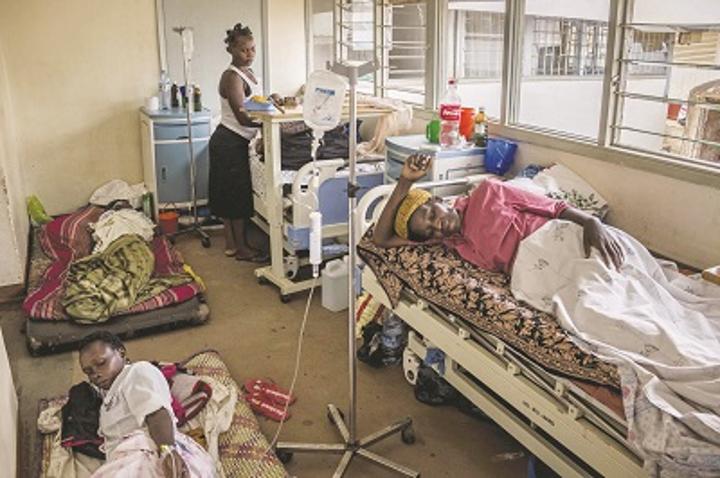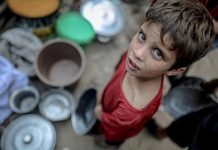Africa-Press – Lesotho. The Ministry of Health has revealed that M110 million is spent on cancer patients who are treated in Bloemfontein hospital South Africa every year because Lesotho does not have a national cancer control facility.
Speaking at the press conference held in Maseru on Friday, Cancer Network Specialist, Pharoe Sejojo said the celebration of cancer day, internationally commemorated annually is aimed for other reasons to make the governments aware that there is a need for a coordinated and funded national cancer control to accelerate cancer prevention.
He said currently the challenges of treating cancer outside the country include that some patients get treatment very late due to late detection of cancer.
He explained: “Having our own cancer control will help us to detect cancer at a very early stage and avoid people dying with cancer due to late treatment,” he said.
Sejojo indicated that at the moment cancer patients are not treated in the local hospitals but they are rather referred to South Africa for treatment and the situation has resulted into inequitable access to services, late stage presentations and poor treatment outcomes leading to significant number of cancer patients dying and huge financial burden to the government of Lesotho.
“Most cancer patients in the country are referred to Bloemfontein, for advanced treatment, such as chemotherapy, radiation-therapy and surgery.
” He added it is also important for Lesotho to have radiation protection bill even before the center could be constructed.
Sejojo said the other important stage that has to be met before the center is up and running is to have enough and well trained human resources as well as those to be used at the center.
However, Informative has learned that some patients are reluctant to go to South Africa for fear they might not survive the treatment process and also because they would not feel comfortable in such unfamiliar conditions.
Meanwhile, research shows that cancer, known medically as malignant neoplasia, is a broad group of diseases involving unregulated cell growth. In cancer, cells divide and grow uncontrollably, forming malignant tumors, which may invade nearby parts of the body.
The cancer may also spread to more distant parts of the body through the lymphatic system or bloodstream. The causes of cancer are many, complex, and only partially understood.
Among the common causes of cancer, or behaviour that increases the risk of cancer, are tobacco use, dietary factors, certain infections, exposure to radiation, lack of physical activity, obesity, and environmental pollutants. These factors can directly damage genes or combine with existing genetic faults within cells to cause cancerous mutations.
“Approximately 5–10 percent of cancers can be traced directly to inherited genetic defects, while many cancers could be prevented by not smoking, eating more vegetables, fruits and whole grains, eating less meat and refined carbohydrates, maintaining a healthy weight, exercising, minimising sunlight exposure, and being vaccinated against some infectious diseases.
Cancer can be detected in a number of ways, including the presence of certain signs and symptoms, screening tests, or medical imaging. Once a possible cancer is detected, it is diagnosed by microscopic examination of a tissue sample.
Cancer is usually treated with chemotherapy, radiation therapy and surgery. The chances of surviving the disease vary greatly by the type and location of the cancer and the extent of disease at the start of treatment.
While cancer can affect people of all ages, and a few types of cancer are more common in children, the risk of developing the disease generally increases with age.
In 2007, cancer caused about 13 percent of all human deaths worldwide (7.9 million), with the rates rising as more people live to an old age and as mass lifestyle changes occur in the developing world.
For More News And Analysis About Lesotho Follow Africa-Press






